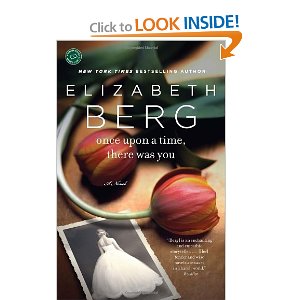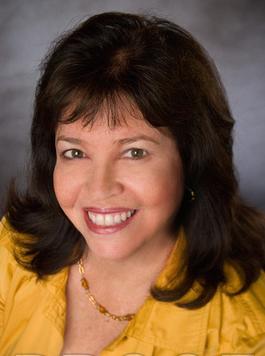On 16th of Feb. we had an interesting and informative webinar about Using Twitter on Market Your Book. Our panel consisted of Carolyn-Howard Johnson (author of the HowToDoItFrugally series), Joel Friedlander (proprietor of Marin Bookworks), Laurel Marshfield (professional writer, ghostwriter and developmental editor), Phyllis Zimbler Miller (co-founder of Miller Mosaic Power Marketing) and Penny C. Sansevieri (CEO of Author Marketing Experts, Inc.).
We answered a lot of questions but still had a few unanswered. This post answers those questions. If you have any questions, please leave them in the comments for our panel.
1. I was wondering if anyone had any tips on staying on top of the traffic – how do we work through the noise to get tweets that are relevant. The flipside of that is how do we break through the noise as promoters – to help others to focus on our tweets. [Magdalena Ball]
Laurel Marshfield:
To “cut through the noise,” you may want to create a list of Twitter accounts that consistently deliver relevant tweets. You could also follow relevant lists others have created (for instance, my own two lists would probably interest most authors, as one is a list of Twitter accounts offering advice to authors; the other is a list of authors with accounts on Twitter; you can find them at @BookEditorLM ).
To help others focus on your tweets, find out what your audience wants and consistently provide it. (For instance, Joanna Penn realized that she could build a huge following by offering advice for authors just launching their career — advice about all the things she had to learn anyway to succeed as a self-publishing novelist.)
Also be sure to follow people who would be interested in what you offer. And be equally sure to offer great content in an enticing way.
Carolyn-Howard Johnson:
Ahhh, sweet Maggie. It is Carolyn. Tweet deck works. It allows you to follow folks you think will benefit you and to categorize them. So…categories like literary agents, book marketers, editors, etc.
Joel Friedlander:
On staying on top of the traffic–use tools like lists, hashtags and software that can segregate the tweet stream into manageable pieces. I maintain 8 or 10 lists and use numerous hashtags to accomplish this. And realize that as your account grows, you simply will not be able to read every tweet of every person you follow.
Penny C. Sansevieri:
I recommend filtering systems like Tweetdeck and HootSuite — you can isolate Twitter people and keywords, that will really help you filter out the noise. If you are looking to get attention from bigger names, I recommend engaging with them by responding to their tweets and retweeting them. Much like commenting on blogs, this will really help get you noticed!
2. In a world where social media is supposed to be “social” and personal… what is the opinion of you pros on Twitter AutoDMs? [Jacqueline Windh]
Laurel Marshfield:
I don’t think AutoDMs are effective for building a bond with new followers. It’s sort of like getting an “Out of Office” autoreply from someone. I guess it’s better than feeling as if they didn’t get your email, but it doesn’t advance things much.
With AutoDMs, there’s almost no way to not be in some way insulting or annoying. If you use one to sell something, it’s annoying. If you assume this new follower wants to know what you know, it’s insulting.
Maybe a simple “I’m so pleased you decided to follow me” would skirt those twin dangers. But it doesn’t seem very sincere — so pleased you sent an automated message?
I’m sure one could make a case for the opposite perspective, though, and so I think it comes down to personal taste. And in the end, it probably doesn’t make much difference either way.
Carolyn-Howard Johnson:
I think that of all the social networks, Twitter is adapted to and more accepting of less personal chit-chat. A steam of tweets that includes lots of answers to others’ problems (often–as we pointed out–without a reference to what those problems may be), chitchat about personal things that have no connection whatsoever to the focus of that tweet account, etc. are not likely to be followed. As to the autoDM’s I get impatient with the ones I get that go way past an auto-acceptance of a follow. I usually don’t have time to go in and unfollow folks who send them, but I’d like to. And if I notice that happening quite often from one particular tweeter, I do unfollow. I’m not even quite sure where the heck they all come from or what service tweeters are using to send them, but they definitely can be intrusive. I’ve never done that and won’t.
Joel Friedlander:
On AutoDMs: I don’t use them. I don’t see anything wrong with it, but really put a lot of thought into what your message is, that’s more important than whether you do it or not. Inviting people to interact with you can be effective. People who autoDM me with a sales message get unfollowed quickly.
Penny C. Sansevieri:
I used to use them, but I don’t anymore. I don’t recommend automated anything really…
3. Mostly what you talked about was tweets oriented towards authors or relating to writing. But other authors are not really our main market as far as book sales. What do you see as the reasons for, or advantages of, cultivating other authors as our Twitter followers? [Jacqueline Windh]
Laurel Marshfield:
I think the best way to answer is to refer you to a blog post I wrote for the BookBuzzr.com site (under BBMTC) about the two main strategies authors adopt when building their author platform in preparation for promoting their book. Here is the link: http://bit.ly/eujHqp
Apart from that, it’s a good idea to remember that sales don’t occur in a vacuum. And if, as Hillary Clinton said, “It takes a village” to raise a child, it also takes a village of other authors working in your genre or niche (as well as related G&Ns), media contacts, online fans and friends, followers, and as many other groups as you can muster, to get the word out after your book launch and ultimately sell many copies.
But apart from that benefit, the burdensome aspect of the many long months or years that most authors spend conceiving and writing their book can be lightened by the support of other authors (hence the popularity of TweetChat groups).
For all these reasons, following and being followed by other authors makes sense for authors wanting to sell their books.
4. I notice that lately you have been RTing a lot (mostly RTs of people your followers would follow anyway)- and then *repeating* those RTs. I am wondering if you could comment on your views about how to balance between providing “content” for your followers, but not overwhelming them with too much content (and especially repeated content). [Jacqueline Windh]
Joel Friedlander:
Thanks for your question. There are over 100 million accounts on Twitter, and certainly people develop their own way to use the service. I repeat tweets for the reason I mentioned in the webinar: I have readers spread from Australia to London, and the lifespan of a tweet for most people is about 15 minutes.
As far as RTs go, I find that in the indie publishing niche many of us RT each other’s posts, and that makes a lot of sense. Although I assume there’s some overlap in our followers, we each have our own network to care for and to provide useful information to.
As with any media consumption, it’s up to the user to decide how to use it and to fashion a way that works for them. And as with other media, most people seem to just skip the stuff they aren’t interested in.
While I would like to please every single follower I have in as many ways as possible, I know that’s not going to happen. If some people unfollow me because our approaches to Twitter are too different, I would regret it, but I would also understand that that’s something they have to do for themselves.
5. Interesting info that you check out each person before following them. But I see you follow over 5000 people – I am wondering how many of them you actually read the Tweets of? This is one of my concerns about getting followers – when someone who already follows thousands of people then follows me, I know it is unlikely that they will actually read any of my Tweets. So what is the advantage to me to get followers who are not reading what I say? the important part of my question is: then what value is it to me, if Phyllis follows me but never reads what I say. Thanks. [Jacqueline Windh]
Phyllis Zimbler Miller:
First, those 5000 people are not an overnight happening. This took 2 1/2 years of growing organically — not spending a great deal of time following others but instead slowly making connections on Twitter. And I think that the recent advent of Mashable’s customized software http://paper.li — for which several people have picked up posts from my company blog — has helped increase the number of new followers.
And I do take into consideration how many followers someone has before following that person back. If the person has 10,000 followers and his/her topic is not related to what I tweet about, I probably don’t follow back because I figure that person isn’t really interested in my tweets but interested in adding to follower numbers.
This is an example of why I evaluate each person individually. But I do have the ability to make this decision in less than a minute — even if I check the person’s website.
Here’s the big advantage if someone following you has lots of followers AND these followers are related to your brand (business, book, cause):
If that person happens to share something of yours — or if you tweet to that person and he/she responds to you by your username — you will be getting in front of people who might not have otherwise found you. And a couple of them may click on your username, find you of interest to them, and start following you. And these people are usually qualified connections.
Read more about this discussion here.
6. How does one create a new hashtag? [Thomas Drinkard]
Joel Friedlander:
To create your own hashtag, just use the pound sign and enter it as regular text with no spaces. Twitter will turn it into a link automatically when your tweet is posted. There’s nothing else to it. Of course, if no one else is using or knows about the tag you created it will have limited use, but I know of people who do this simply to send themselves reminders. So go ahead and experiment, it’s actually good fun.
What are your thoughts? Would you like to add to the answers? Have questions about using twitter for book marketing? Leave your questions and suggestions in the comments for our panel.



